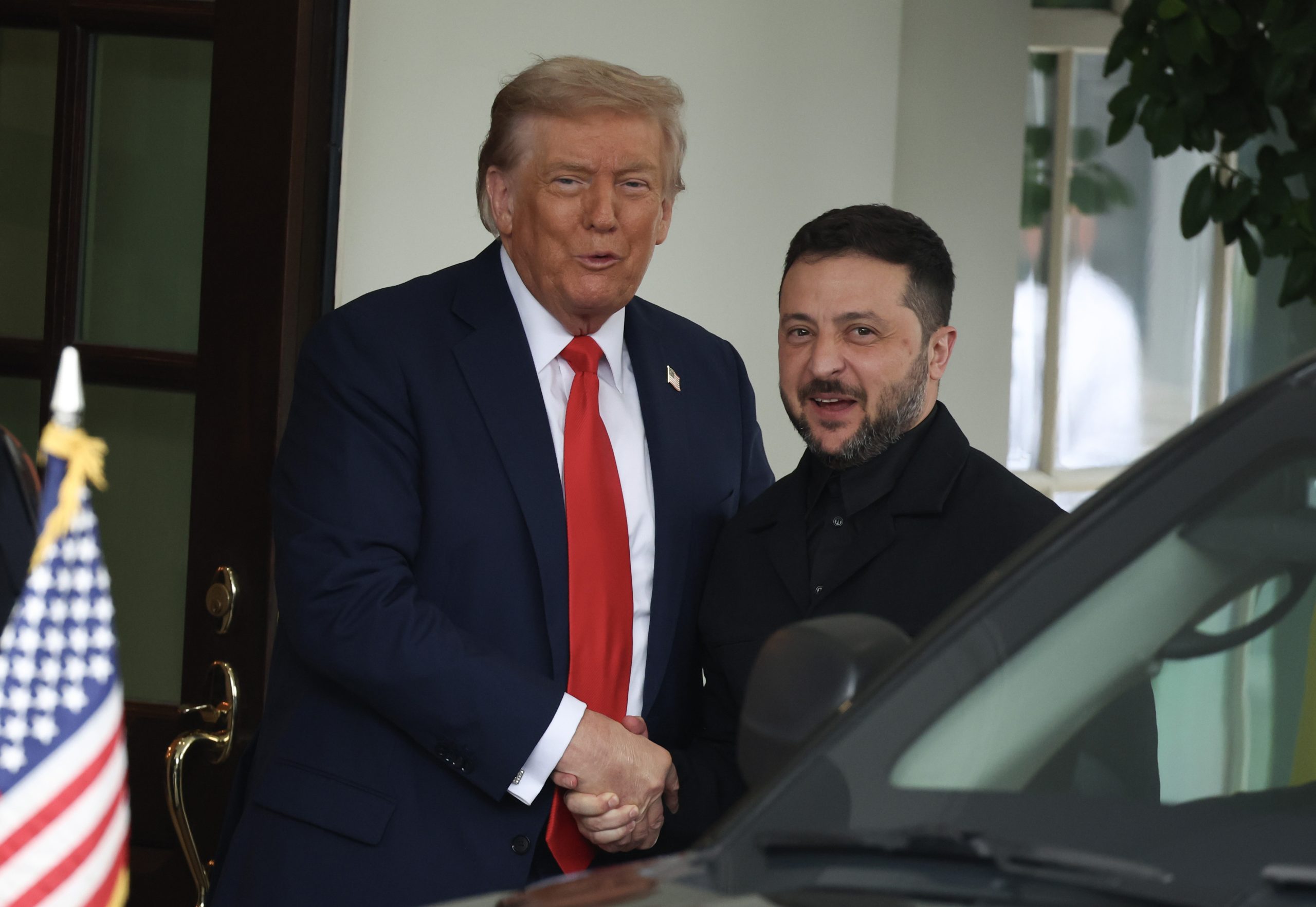**Zelenskyy’s White House Visit Underscores Ukraine’s Unwavering Stance**
President Volodymyr Zelenskyy’s recent White House meeting with then-President Donald Trump highlighted a stark disagreement over the future of Ukraine’s territorial integrity. While Trump, following a meeting with Vladimir Putin, appeared to soften his stance on an immediate ceasefire, suggesting a potential “land swap” involving Ukrainian concessions, Zelenskyy remained resolute. This unwavering stance underscores the deep-seated complexities of the ongoing conflict in eastern Ukraine and the significant challenges facing any potential peace agreement.
**The Donbas Holdout: A Strategic and Symbolic Battleground**
Despite significant losses and a protracted conflict spanning over three and a half years, Ukrainian forces still maintain control over approximately 2,550 square miles of the Donbas region—an area comparable in size to the state of Delaware. This relatively small but strategically vital territory represents far more than just land; it symbolizes Ukraine’s determination to resist further Russian encroachment and preserve its sovereignty. The Donbas holds significant economic and symbolic importance, and ceding this land would represent a major blow to national morale and potentially embolden further Russian aggression. The human cost of the conflict, with tens of thousands of Ukrainian lives lost, further fuels the nation’s resistance to territorial compromise.
**Negotiating Peace: A Complex Equation of Power and Principle**
Trump’s apparent shift towards a “land swap” approach, echoing Putin’s reported willingness to negotiate only minor territorial adjustments, reveals a significant divergence in perspectives. While some argue that territorial concessions could bring a swift end to the bloodshed, such a move carries enormous risks. It could set a dangerous precedent, emboldening Russia to pursue further territorial ambitions in Ukraine and destabilizing the region. Furthermore, forcing Ukraine to cede territory without its consent risks undermining its sovereignty and potentially exacerbating internal political divisions. The Ukrainian government has consistently maintained that any peace agreement must respect its internationally recognized borders and that negotiations should center on a full withdrawal of Russian forces and the restoration of Ukrainian control over all occupied territories.
**Looking Ahead: Challenges and Uncertainties**
The path to peace in eastern Ukraine remains fraught with challenges. The differing views between Ukraine and Russia, coupled with the evolving stances of external actors like the United States, highlight the complex geopolitical dynamics at play. The issue is not simply about land; it’s about self-determination, national identity, and the broader implications for European security. Any lasting peace agreement will require a delicate balance between pragmatic considerations and the upholding of fundamental principles of sovereignty and international law. The future of the Donbas, and indeed Ukraine’s future, remains uncertain, but Zelenskyy’s firm stance signals Ukraine’s commitment to fight for its territorial integrity and self-determination. The international community will need to play a crucial role in mediating a solution that respects these fundamental principles.
Based on materials: Vox





